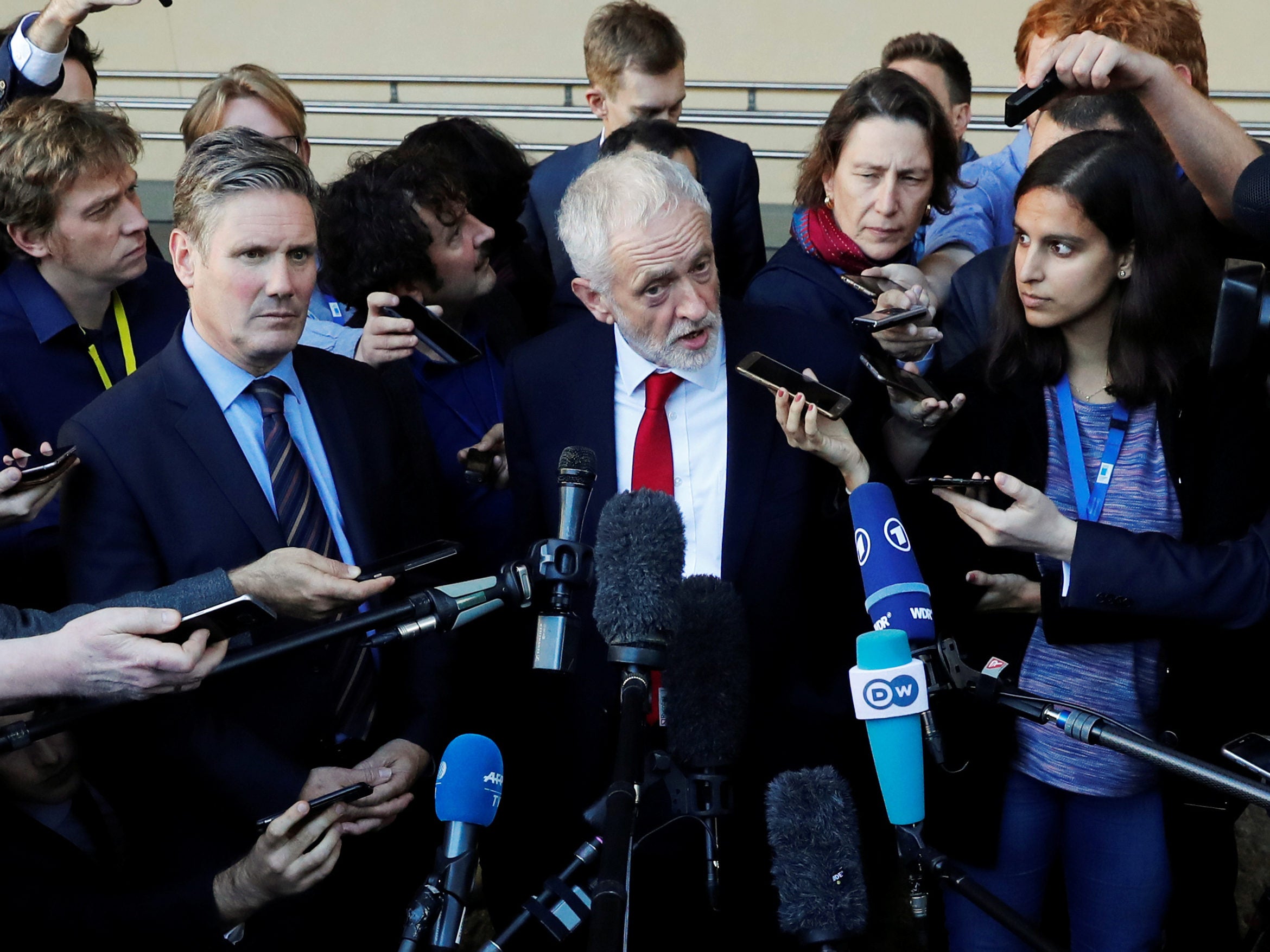
A report on threats facing members of the press in Europe has criticised UK politicians for having “smeared journalists and media outlets critical of them” and dismissing news reports as “fake news”.
It claims remarks from “leading political figures in countries from the UK to Hungary” have “created an environment in which reporters are demonised, and thereby more vulnerable to abuse online and off”.
The report, overseen by Index on Censorship and funded by the European Commission, is based on a survey of more than 3,000 press freedom violations across 35 European countries over the past four years.
Demonising the Media: Threats to journalists in Europe, took data from the IOC’s Mapping Media Freedom project which logged press freedom violations between May 2014 and July 2018.
The report also found the UK was the fourth largest source of online harassment complaints, behind Spain, Italy and Croatia.
Discussing the threat UK national security laws posed to the press, the report read: “Governments are using terror laws to spy on journalists.
“In 2014, the UK police admitted that it used powers under terror legislation to obtain the phone records of Tom Newton Dunn, political editor of The Sun newspaper, to investigate the source of a leak in a political scandal.
“Police used powers under the Regulation of Investigatory Powers Act, which circumvents another law that requires police to have approval from a judge to get disclosure of journalistic material.”
The grabbing of Newton Dunn’s phone records led to Press Gazette’s Save Our Sources campaign which won a change in the law to require judicial sign off for any police request to spy on journalists’ call records.
The report identified five key threats to media across the continent: counter-terrorism bills, political interference, social media harassment, tightened government control of public broadcasters, and protests.
Vonny Moyes, a columnist for Scottish newspaper The National, said comments by leading UK Conservatives on one of her columns amplified abuse towards her and “exposed her to more direct harassment than usual”.
An anonymous Twitter user, who had previously trolled Moyes over her columns, targeted her in 2016 by posting private photos of her on the social media platform.
Labour and the Scottish National Party were said by the report to have been among several political parties on the continent that had engaged in “political interference” with the media.
Although not explicitly named in the report, Index on Censorship has told Press Gazette it also believes the Conservative Party to have engaged in political interference.
It said these methods could be subtle or overt, such as “behind-the-scenes phone calls to an editor” or “preventing a journalist affiliated with particular outlets from attending a press conference”.
Attempts to smear journalists, news outlets “and in some cases an entire industry in order to sow doubt about the veracity of their reporting” is another form of political interference identified by the report.
“The goal of controlling information flow remains the same,” it said.
The report warned that in the UK “journalists may be locked in side rooms or barred from attending conferences” and that this was an “all-too-common occurrence across the continent”.
IoC has confirmed examples of political interference from the UK’s three largest political parties, which were reported in the Mapping Media Freedom database but were not directly referenced in its report. They included:
- Cornwall Live journalists prevented from covering Theresa May visit
- Conservative-run Thurrock council allegedly approved plans to restrict access of journalists who don’t “reflect its position”
- Labour leader says parts of British press “spread lies and half-truths”
- Corbyn’s press team ban Buzzfeed from campaign events
- Reporters barred from Alex Salmond press conference
Neither the Conservatives, Labour or the SNP have replied to Press Gazette’s request for comment on the report’s claims.
The report warned that counter-terrorism bills and national security laws were used to silence public interest journalism in “worst-case scenarios”. It identified 39 cases where attempts were made to prosecute journalists that published embarrassing government leaks.
In a statement, IoC chief executive Jodie Ginsberg said: “The huge number of [reported incidents] outlines that threats to media freedom are occurring across the EU, not just in countries perceived to be on the fringes of the community.
“Demonising the Media details the key issues that we’ve identified: From national security legislation being used to silence investigative journalists to the undermining of the editorial independence of public broadcasters across the continent.
“All of this has taken place amid the toxic atmosphere journalists are confronting on a global scale.”
On social media, the report authors recognised that platforms could help the press share content and connect with readers, but is said that sexual harassment and death threats were a “widespread and pernicious issue that journalists across the continent confront on a daily basis”.
Women in the media received the most threats through social media, it said.
Read the full Demonising the Media: Threats to journalists in Europe report.
Picture: Reuters/Yves Herman
Email pged@pressgazette.co.uk to point out mistakes, provide story tips or send in a letter for publication on our "Letters Page" blog
